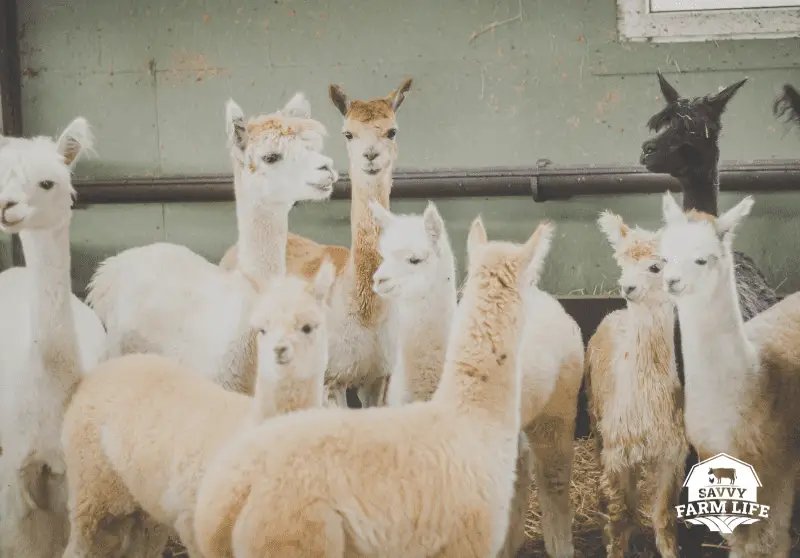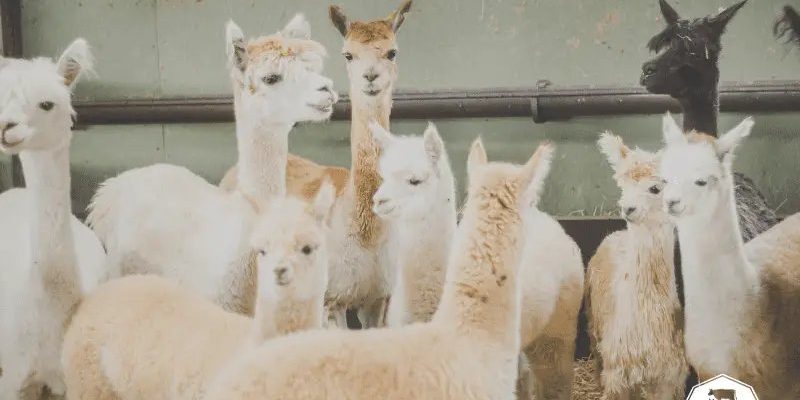
Understanding the life stages of an alpaca can help you appreciate them even more. It’s similar to knowing the different phases of a child growing up; each stage comes with its own charms and challenges. Let’s dive into the world of alpacas, explore how long they can live, and discover the signs of aging that you might observe along the way.
Alpaca Lifespan: What to Expect
On average, alpacas live between 15 to 20 years, but some can exceed this range with excellent care. Just like your favorite plant that thrives with sunlight and water, an alpaca’s lifespan greatly depends on the environment it’s raised in, along with its health and genetics. Providing a clean habitat, a nutritious diet, and regular veterinary check-ups can help ensure your alpaca lives a long, healthy life.
Interestingly, alpacas age similarly to humans in many ways. A six-month-old alpaca is roughly equivalent to a human toddler, while a three-year-old is more like a young adult. So if you keep track of their age, you can get a better grasp of what stage they’re at in life. It’s a comforting thought: you’re not just raising an animal; you’re nurturing a companion that develops alongside you.
Factors Affecting Alpaca Lifespan
Several key factors impact how long your alpaca will live. Let’s break them down:
- Genetics: Just like us, alpacas inherit traits from their parents. Some bloodlines are known for longevity, while others may face genetics-related health issues.
- Diet: A well-balanced diet rich in fiber and nutrients can significantly contribute to their overall health. Think of it as feeding your alpaca a well-rounded gourmet meal rather than fast food. The right nutrients can make a world of difference.
- Healthcare: Regular veterinary care is essential. Routine vaccinations, dental care, and addressing any health concerns promptly will keep your alpaca in tip-top shape. Imagine ignoring a pesky illness—it can lead to bigger problems down the road!
- Environment: A safe, clean, and stress-free environment is crucial. If they feel secure and are kept away from extreme weather conditions, they’ll be much happier and healthier.
By considering these factors, you can create a nurturing environment that promotes a longer life for your alpaca buddy.
Signs of Aging in Alpacas
As alpacas age, they display various signs that indicate they’re moving into their golden years. Watching for these signs can help you know how to adjust your care to meet their changing needs. Here are some things to look out for:
- Dental Changes: Just like humans, alpacas can experience dental issues as they age. Their teeth may wear down, which can affect their ability to eat. You might notice your alpaca being more selective about its food.
- Decreased Energy: An older alpaca may not be as spry as it once was. You might find it resting more or being less active than before. This is normal, but it’s good to keep an eye on their activity levels.
- Coat Changes: The fleece of an aging alpaca may become thinner or change texture. It might lose some of that soft, plush feel that younger alpacas have.
- Reduced Socializing: An older alpaca might want to spend more time alone or be less interested in playing with younger companions. This is a natural part of aging, but ensure they still feel connected and loved.
Aging can be a gradual process, but by observing these signs, you can adapt your care approach and provide them with extra love and attention.
Caring for Aging Alpacas
When you realize your alpaca is getting older, you might wonder how to adjust its care. Here are some tips to help ensure your beloved companion remains healthy and happy during its senior years:
- Nutritional Needs: As alpacas age, their dietary needs may change. They might benefit from softer food options or supplements to support their health. Talk to your vet about the best diet for your aging alpaca.
- Comfortable Shelter: Ensure your alpaca has a cozy, warm place to sleep, especially during colder months. A comfortable shelter can make a world of difference in their quality of life.
- Frequent Check-ups: Regular vet visits become even more crucial as your alpaca ages. Catching any potential health issues early can make a significant difference in treatment.
- Gentle Exercise: While older alpacas may not be as active, gentle exercise is important. Short walks or light play can keep them engaged and physically healthy.
By being proactive in your care, you can help your alpaca enjoy its twilight years to the fullest.
Understanding the Life Cycle of an Alpaca
To appreciate how long alpacas can live, it helps to understand their life cycle. Let’s break it down:
- Infancy (0-6 months): During this stage, alpacas are called crias. They rely on their mothers for nutrition and learn social behaviors from interactions with others.
- Juvenile (6 months – 2 years): Young alpacas grow quickly and begin to explore their surroundings. This is when they learn to interact with humans and other animals, and their personalities start to show.
- Adulthood (2-15 years): Adult alpacas are full of energy and social interaction. They reach their prime during this time, where they’re often bred or enjoyed as pets.
- Senior (15+ years): In their later years, alpacas slow down. They may require more specialized care.
Understanding this life cycle enriches your knowledge and connection with alpacas, allowing you to cherish each phase of their life.
Alpacas are incredible companions. Just like us, they go through different stages of life, and understanding their lifespan and aging signs can help you provide the best care possible. By focusing on their health, diet, and environment, you can enjoy many years together.
As you embark on your journey with your alpaca, remember, they’re not just animals; they’re part of your family. With the right love and care, you might just find yourself sharing a life that’s well-lived—together.

